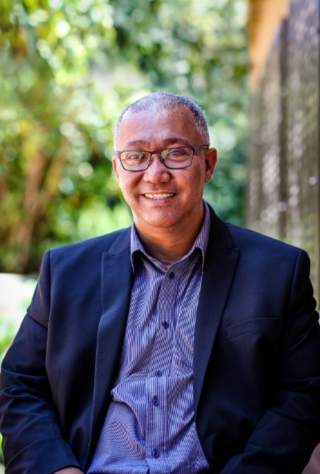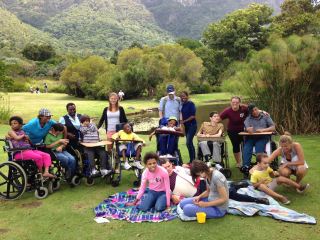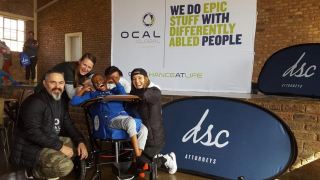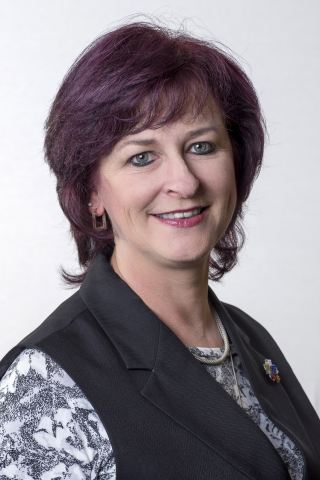Priority vaccination plea to save lives
Risk of death rather than mortality rates should be the criteria that secures priority vaccination argues the QuadPara Association of South Africa (QASA). The organisation has made a plea to the Department of Health to include quadriplegics and paraplegics in the second round of the vaccine roll out. The organisations hopes this will prevent deaths among its members and ensure no one is left behind.
“Many quadriplegics and paraplegics are at a higher risk of contracting the COVID-19 virus,” explains Raven Benny, QASA COO. “By pushing their wheelchairs, catheterising or accepting assistance from their carer, they are placed in high-risk situations.
“For most, social distancing from their caregiver, family or friends are impossible as they need assistance with daily, essential activities. A vaccination might not prevent them from contracting the Coronavirus, but it can prevent a visit to the hospital.”
Many quadriplegics and paraplegics are at an increased risk of falling severely ill and hospitalisation when contracting COVID-19. Due to lifestyle factors, like a sedentary routine, many in the community have co-morbidities like diabetes or high blood pressure. In addition, pressure sores (an open wound) and urinary tract infections are common and put strain on an already compromised immune system.
Aside from the impact on limbs, a spinal cord injury plays havoc on the immune systems and nervous systems of quadriplegics and paraplegics. The immune system is slowed, which gives the virus more opportunity to spread.
“We want to keep our members out of hospital as we are very much aware that, unfortunately, they are not always considered a priority,” Benny continues. “In times of disaster, doctors will do what is best for the most, which might mean denying a high-risk patient access to a ventilator to help others.
“We respect the medical practices that prioritise saving as many people as possible. Instead, we are calling on the Department of Health to save lives. They have the resources to make sure our members are never placed in a situation where a doctor needs to decide between saving them and another with a strong immune system. We need to be vaccinated.”
QASA wrote to the Department twice. After the first letter, the Department enquired about the mortality rate among members. Aside from the limited information available regarding deaths, QASA argues that there is sufficient reasons to vaccinate the community.
“Are we going to be denied because there haven’t been enough deaths? How many should die before we are considered vulnerable? We call on the Department of Health to put risk of death as the highest priority rather than existing mortality rates,” says Benny.
“Afterall, are they in the business of saving lives or counting corpses?” he concludes.
-- ENDS --
Notes for the Editor:
For more questions, concerns or comments:
Raven Benny, QASA COO
This email address is being protected from spambots. You need JavaScript enabled to view it.
031 767 0352
Mariska Morris, Communications officer
This email address is being protected from spambots. You need JavaScript enabled to view it. OR This email address is being protected from spambots. You need JavaScript enabled to view it.
084 788 8399
Read more on the vulnerability of quadriplegics and paraplegics:
Christopher & Dana Reeve Foundation, 2021. Christopher & Dana Reeve Foundation. [Online] Available at: https://www.christopherreeve.org/living-with-paralysis/health/secondary-conditions/covid-19-and-spinal-cord-injury[Accessed 21 April 2021].
Calvo, E. et al., 2020. Why Does COVID-19 Affect Patients with Spinal Cord Injury Milder? A Case-Control Study: Results from Two Observational Cohorts. Journal of Personalized Medicine, 10(182).Louw, G., 2020.
Choice. A matter of ethics.. Rolling Inspiration, Issue 3, pp. 24-26.Stillman, M. D. et al., 2020.
COVID-19 and spinal cord injury and disease: results of an international survey. Spinal Cord Series and Cases, 6(21).
Businesses Join Forces to Raise over R200k for Woodside Special Care Centre
Since 2013, DSC Attorneys, a law firm specialising in personal injury and Road Accident Fund (RAF) claims, has been sponsoring an annual golf day to raise funds for The Woodside Special Care Centre, a residential home for profoundly disabled persons.
This year the event raised R220 000 – its biggest collection yet.
DSC Attorneys hosted the golf day at the Kuils River Golf Club on 15 November. All the funds raised were donated to the Woodside Special Care Centre.
The money raised through the event has steadily increased over the years with R70 000 being raised in 2013, R107 000 in 2014, R141 000 in 2015, R192 500 in 2016 and in R190 000 in 2017.
Office manager at DSC Attorneys, Michéle de Jager, says the support that this year’s golf day garnered was both overwhelming and heart-warming. “We first thought we’d surpassed our target of R200k by raising R215 000 this year, but then people were so inspired by Woodside’s work that we had a few last-minute donations come in. This pushed the final amount we collected to R220 000,” she says.The remaining funds were raised through entry fees, raffles, monies collected through smaller competitions and an auction on the day – where the items on auction were sponsored by the law firm.
DSC Attorneys also sponsored a four-ball team made up of the Woodside Centre’s board of trustees.
Woodside Special Care Centre is a residential home in Rondebosch East, Cape Town. It provides specialised care for persons who live with more than one disability, including intellectual and physical disabilities.“We wouldn’t be able to do what we do without people like the team from DSC Attorneys. They have been instrumental in making the lives of Woodside Special Care residents better,” says Clive Obery, Marketing Manager of the centre.
Obery says the funds donated by DSC Attorneys are utilised for the centre’s Wards of the Court Programme. The programme looks after children aged 6-12 who’ve been placed in the centre’s care by the State. Many of the children in the programme have three to four disabilities and are unable to bathe, dress or feed themselves. “Their families don’t have the facilities, skills and training to provide them with the constant specialised care they need,” says Obery. It costs the centre approximately R11 000 per month to care for one of the 25 children in the Wards of the Court Programme. The centre employs 122 staff and houses a total of 80 residents, some of whom have been living there for over 40 years. “We have about ten residents who’ve been here since the age of two and are now in their late 40s and early 50s. They end up staying here because there isn’t anywhere else for them to go,” says Obery.
When DSC Attorneys first hosted the golf day in 2013 at the Bellville Golf Club, 24 four-ball entrants took part. Since then, it’s grown to accommodate a full field of 34 teams, including business partners of the law firm and private individuals, many of whom have made the competition an annual tradition.
After the day of golf, the teams enjoyed a gala dinner where prizes were awarded to the top 19 teams. This year the winning four-ball was the team from Groote Post Wine Estate in Darling.Anyone who wants more information or would like to make a contribution to Woodside Special Care Centre can contact Clive on 021 696 2811 or This email address is being protected from spambots. You need JavaScript enabled to view it..
NPC and Attorneys Tackle Disability Stigma One Hug at a Time
According to the World Health Organization, as many as 15% of all South Africans live with a disability. Many of these people are children – and in too many cases, they’re not receiving the basic support they need.
International NPO, Human Rights Watch, estimates that half a million children with disabilities aren’t being offered access to quality education. South Africa’s Department of Basic Education statistics for 2017 indicated that 11 461 children with disabilities were on special school waiting lists.
With so many overwhelming statistics, it’s easy to focus on the logistical problems and, in the process, forget about the children who make up those figures. Many of these kids say the hardest part about being disabled is the discrimination. Being treated like a number only makes it worse.
“Sometimes all these kids need is just some love and attention. They are children after all and they deserve to have some joy in their childhood, says Nicolene Mostert founder of NPC, One Chance At Life (OCAL) Global. Mostert’s organisation does much to combat the stigma associated with disability.
The organisation’s goals are to provide wellness activities, economic opportunities and sustainable skills development programmes for differently abled people. With the assistance of DSC Attorneys, a law firm specialising in personal injury and Road Accident Fund (RAF) claims, the organisation is tackling the issues one step at a time.
One of the projects OCAL Global is currently running involves working with differently abled children in the Pixley ka Seme District in the Northern Cape. The goal is to bring some normality to these children’s lives, through simple, fun activities like colouring-in, face-painting and playing games. Mostert has been working in this area for several years and has identified over 2000 children under the age of 12 who have disabilities and who haven’t once seen a doctor or been properly diagnosed.
12-year-old Thato (name changed), for example, suffers from cerebral palsy and needs his mother’s constant assistance to perform basic day-to-day activities. Because he can’t walk, his mother often has to carry him on her back, covering long distances when she runs daily errands.
On a recent trip, DSC Attorneys and OCAL Global delivered a wheelchair to Thato and his mother. The simple donation has made a real difference to the boy’s and his mother’s lives. Thato reports feeling much more independent and his confidence has grown. His mother says, “It’s the first time in 12 years that I’ve felt hope”.
“Sometimes we think we need to make some big change to have an impact, but even the smallest effort can have a huge effect on someone’s life. I was really grateful to see that”, says Jacqueline Hudson, associate attorney at DSC Attorneys.
OCAL Global is focused on making persistent impact at grass roots level, “because that is how we bring change and hope to those who need it most,” says Mostert. She says much change can be brought by companies just evaluating their approaches to corporate social investment.
Anyone who’s interested in supporting OCAL’s cause can contact Nicolene Mostert on This email address is being protected from spambots. You need JavaScript enabled to view it. or call on 083 314 7349.
Motor Industry heavyweights announce important business transformation initiatives
Two major role-players in the South African motor retail industry – the Retail Motor Industry Organisation (RMI) and the Motor Industry Staff Association (MISA) – today announced two important business transformation initiatives in the South African retail motor industry.
The two organisations that carry considerable weight in the motor retail industry (the RMI, with more than 7 500-member businesses, is the leading collective voice of the retail motor industry in South Africa, while the fast-growing and dynamic MISA, with its well over 43 000 members, is the only union that focuses exclusively on the retail motor industry) have pledged their strong commitment to address two pressing issues in the industry: creating more job opportunities for people with disabilities and achieving greater gender equality.
Equalising the gender playing field
The two organisations have agreed to work together to equalise the gender playing fields in what is still a predominantly male-dominated industry, while also attracting and retaining more people with disabilities to this important economic sector.
Issues on the agenda include redressing the inequalities of power that exist in the areas of decision-making and representation, the differences in legal status between different genders, eradicating violence against women in the industry as well as the discriminatory attitudes that still prevail, while achieving an increased participation of women in the labour market.
“No one should be subject to gender discrimination or harassment,” says Martlé Keyter, MISA’s CEO Operations.
RMI CEO, Jakkie Olivier, notes, “As the RMI, we are committed to invest more effort into ensuring gender issues are addressed in collective bargaining and promoting the equal treatment of all employees.”
The two organisations have joined forces with various industry employers and have also already enlisted and trained a team of industry representatives who will champion the two initiatives going forward.
Job creation
According to MISA’s CEO for Strategy and Development, Hermann Köstens, the motor retail industry can play a significant role in creating jobs for people living with disabilities, with a specific focus on young workers.
“With 48 000 jobs lost in South Africa in the first quarter of this year, we as an industry must step up and do whatever we can to stimulate job creation,” he notes. “One way in which to do this is to create more opportunities for people with disabilities and to retain them in our industry.”
Keyter agrees, “We would like to see employers make a mind-shift towards focusing on what people living with disabilities can contribute to the workplace, rather than focusing on what they cannot do.”
“We are strong campaigners that persons with disabilities who want to work, must be given the opportunity to do so if they possess the inherent qualities the job requires,” concludes Olivier.





